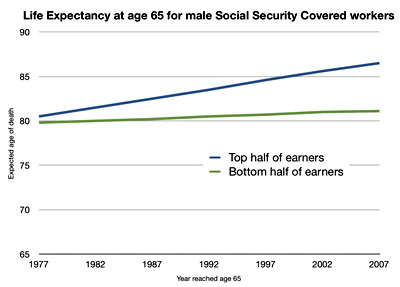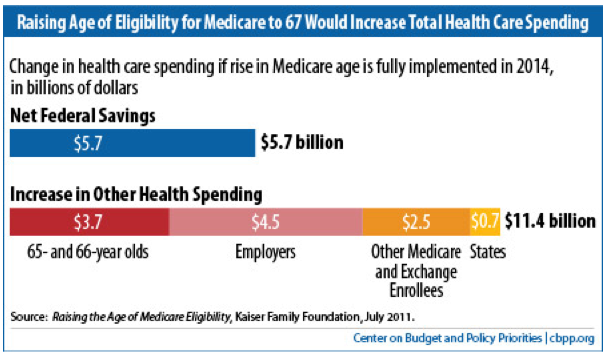Insights · August 26th, 2011
There was a time when I thought that raising the retirement age was a good idea. People were living longer and healthier, and most work was information or service work. So why not? The U.S. age for Social Security is already going up to 67. What would be the harm in raising it to 70?
More recently I have come to the view that this would be bad public policy. Why? For those in the top 50% of earners life span is indeed increasing, but for those in the bottom 50% of earners life span is barely changing. Raising the retirement age would be quite harmful to those earning less, who are often in the most physically demanding jobs.
Digby has written about this with passion and clarity.
Then there is the recent proposal being floated to save some Medicare spending by increasing the eligibility age from 65 to 67 here in the U.S. This would be a disaster for many, many people age 65-67, who could not afford private health insurance (if they could get it) and may no longer be covered by employers. And it may not save much money for the government. It is Insurance 101 to keep younger, healthier people in your program. In fact a recent analysis shows that while there may be a small saving in Medicare itself, the costs to individuals, employers, and states, plus higher costs to remaining Medicare enrollees will be more than twice any anticipated savings. Uh oh. Maybe this idea needs to be re-thought.
Related Blog Posts:
Future Careers and Aging
Four Challenges for CEO’s
Glen Hiemstra is a futurist speaker, author, consultant, blogger, internet video producer and Founder of Futurist.com. We are booking events for the Fall-Winter and for 2012. To arrange for a speech contact Futurist.com.



